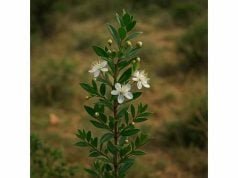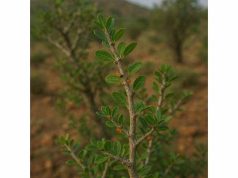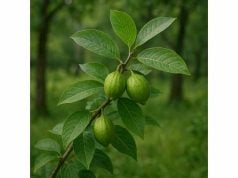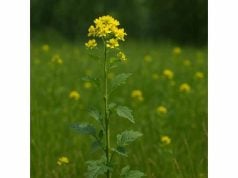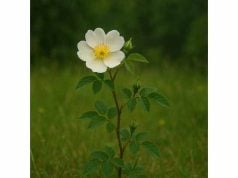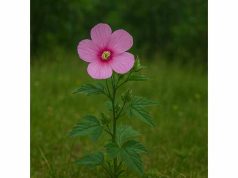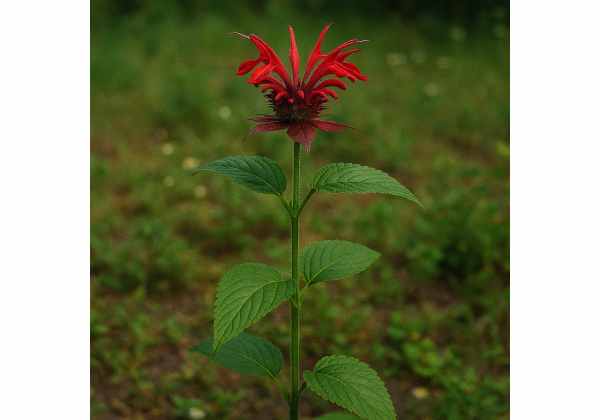
Monarda is a remarkable herb in the mint family (Lamiaceae), known for its vibrant, aromatic flowers and extensive medicinal potential. Traditionally used by Native American tribes and early settlers, Monarda—often called bee balm or wild bergamot—has been celebrated for its ability to support respiratory health, reduce inflammation, and boost immunity. Rich in essential oils, flavonoids, and phenolic compounds, this herb provides antioxidant, antimicrobial, and anti-inflammatory benefits. Whether brewed into soothing teas, applied as a tincture, or used as a culinary garnish, Monarda offers a holistic approach to wellness and natural healing.
Table of Contents
- Botanical Overview and Identification
- Phytochemical Profile and Active Compounds
- Health Benefits and Essential Qualities
- Applications and Safety Guidelines
- Scientific Research and Key Findings
- Frequently Asked Questions
Botanical Overview and Identification
Monarda is a perennial herbaceous plant native to North America, prominently featured in meadows, open woods, and along riverbanks. Classified within the Lamiaceae family, Monarda shares its lineage with many aromatic herbs such as mint and basil. The plant typically reaches heights of 60 to 90 centimeters and is easily recognized by its striking, tubular flowers that appear in vibrant shades of red, pink, purple, or white during the summer months. The inflorescences are arranged in clusters, and the flowers, with their unique flared shape, attract a wide range of pollinators including bees, butterflies, and hummingbirds.
The leaves of Monarda are ovate to lanceolate, with serrated edges and a slightly fuzzy texture. They emit a pleasant, herbaceous aroma when crushed, a quality attributed to the essential oils stored within the leaf tissues. Monarda thrives in well-drained, moderately fertile soils and prefers full sun exposure, although it can tolerate partial shade. Its resilience and adaptability have made it a popular choice in ornamental gardens and wildflower meadows.
Historically, Monarda has played a dual role in both culinary and medicinal traditions. Early Native American tribes utilized its leaves and flowers to prepare teas and poultices for treating colds, fevers, and digestive issues. The herb’s ability to promote sweating and alleviate congestion earned it the nickname “Oswego tea” among early settlers. Today, Monarda continues to be celebrated not only for its ornamental beauty but also for its significant therapeutic properties, making it an essential herb for those interested in natural remedies and holistic health practices.
Gardeners appreciate Monarda for its ease of cultivation and its ability to attract beneficial insects, which can improve pollination and pest control in the garden. Its bright, eye-catching blooms provide aesthetic value, while its aromatic foliage offers a sensory delight. As modern research delves deeper into its bioactive components, Monarda is increasingly recognized for its potential contributions to integrative medicine, where traditional wisdom and scientific inquiry converge.
Phytochemical Profile and Active Compounds
The potent health benefits of Monarda are largely due to its rich phytochemical composition. Researchers have identified an array of bioactive compounds that work synergistically to support various aspects of human health. The following are the key active ingredients found in Monarda:
- Essential Oils:
Monarda’s essential oils are its hallmark, comprising compounds such as thymol, carvacrol, and geraniol. These volatile oils are responsible for the herb’s distinctive aroma and are well-known for their antimicrobial, antifungal, and antiseptic properties. Thymol, in particular, is celebrated for its ability to inhibit bacterial growth and support respiratory health. - Flavonoids:
This herb contains several flavonoids, including luteolin, apigenin, and quercetin. These polyphenolic compounds serve as powerful antioxidants, neutralizing free radicals and protecting cells from oxidative damage. Flavonoids in Monarda contribute to its anti-inflammatory and immunomodulatory effects, making it beneficial for chronic disease prevention. - Phenolic Acids:
Phenolic acids such as rosmarinic acid and caffeic acid are present in significant amounts in Monarda. These compounds exhibit strong antioxidant properties and help reduce inflammation by inhibiting pro-inflammatory enzymes. Rosmarinic acid is also known to support digestive health and may offer protective effects against certain neurodegenerative conditions. - Triterpenoids:
Triterpenoids are another group of compounds found in Monarda that possess anti-inflammatory and anticancer properties. These compounds can modulate cellular signaling pathways and contribute to the overall therapeutic potential of the herb. - Coumarins:
Monarda contains coumarins that exhibit mild anticoagulant and anti-inflammatory properties. These compounds are thought to support cardiovascular health by improving blood circulation and reducing the risk of clot formation. - Sterols:
Plant sterols, including beta-sitosterol, are present in Monarda and contribute to its cholesterol-lowering effects. By interfering with the absorption of dietary cholesterol, these sterols promote a healthier lipid profile and support cardiovascular well-being. - Additional Nutrients:
Besides its bioactive compounds, Monarda provides essential vitamins and minerals such as vitamin C, several B vitamins, calcium, magnesium, and potassium. These micronutrients are vital for metabolic processes, bone health, and overall cellular function.
The complex interplay of these compounds accounts for Monarda’s broad spectrum of health benefits. Advanced analytical techniques like high-performance liquid chromatography (HPLC) and gas chromatography-mass spectrometry (GC-MS) have been instrumental in elucidating the detailed phytochemical profile of Monarda. Researchers continue to study these compounds to understand their synergistic effects and to optimize extraction methods for standardized medicinal formulations.
Consuming Monarda in its whole form—as a tea, infusion, or culinary herb—ensures that these active compounds work together to provide maximum therapeutic benefits. The natural synergy of its essential oils, flavonoids, and phenolic acids reinforces the herb’s role in traditional medicine and underpins its growing use in modern integrative health practices.
Health Benefits and Essential Qualities
Monarda is celebrated for its wide range of health benefits, many of which are rooted in its rich antioxidant and anti-inflammatory properties. The herb has been traditionally used to treat respiratory, digestive, and immune-related ailments, and modern research is beginning to validate these uses. Here are some of the core health benefits and essential qualities of Monarda:
Antimicrobial and Antiseptic Effects:
Monarda’s essential oils, particularly thymol and carvacrol, exhibit strong antimicrobial activity. They help fight off bacterial, fungal, and viral pathogens, making the herb useful for treating infections and supporting overall immune function. Its antiseptic properties have made it a popular remedy for soothing minor wounds and skin irritations.
Respiratory Support:
Historically, Monarda was used to alleviate symptoms of colds, coughs, and congestion. The herb’s expectorant properties help clear mucus from the respiratory tract, while its antimicrobial compounds reduce the risk of secondary infections. Drinking Monarda tea or inhaling its steam can provide relief from respiratory discomfort.
Anti-Inflammatory Action:
Chronic inflammation is linked to many modern diseases, including arthritis, cardiovascular diseases, and neurodegenerative disorders. The bioactive compounds in Monarda, such as rosmarinic acid and flavonoids, help suppress the production of pro-inflammatory cytokines. This anti-inflammatory effect supports joint health and may reduce pain and swelling in conditions like arthritis.
Antioxidant Protection:
The high concentration of antioxidants in Monarda, contributed by its flavonoids and phenolic acids, helps protect cells from oxidative damage. This not only slows down the aging process but also reduces the risk of chronic diseases such as heart disease and cancer. Antioxidants also promote skin health, contributing to a youthful and radiant complexion.
Digestive Health:
Monarda has been traditionally used to stimulate digestion and relieve gastrointestinal discomfort. Its mild carminative properties help reduce bloating and gas while promoting healthy digestion. The herb may also improve nutrient absorption, contributing to overall digestive wellness.
Immune System Boost:
Regular use of Monarda can help strengthen the immune system. Its combined antimicrobial, antioxidant, and anti-inflammatory properties support the body’s natural defenses, making it an excellent herb for maintaining health during cold and flu seasons.
Stress Relief and Mood Enhancement:
The aromatic compounds in Monarda are believed to have mild sedative effects, which can help reduce stress and promote relaxation. This soothing quality makes Monarda a valuable addition to herbal teas and aromatherapy blends aimed at alleviating anxiety and enhancing mood.
In summary, Monarda offers a holistic approach to wellness. Its multifaceted health benefits—from antimicrobial and anti-inflammatory effects to digestive support and stress relief—make it a versatile natural remedy. Whether used in teas, tinctures, or as a culinary herb, Monarda supports overall health and enhances quality of life through its potent, natural properties.
Applications and Safety Guidelines
Monarda is a versatile herb that has found its way into both culinary and medicinal traditions. Its pleasant, aromatic flavor and potent therapeutic properties make it an ideal ingredient for various applications. Below, we detail practical uses and provide safety guidelines for incorporating Monarda into your routine.
Culinary Applications
- Herbal Teas and Infusions:
Monarda leaves and flowers can be steeped in hot water to create a soothing tea. This herbal infusion is traditionally consumed to alleviate respiratory symptoms and promote relaxation. - Culinary Seasoning:
Fresh or dried Monarda can be used as a seasoning in salads, soups, sauces, and marinades. Its slightly minty, spicy flavor adds a unique twist to dishes and enhances the overall flavor profile. - Culinary Garnish:
Use Monarda as a garnish for desserts and savory dishes. Its vibrant flowers not only add aesthetic appeal but also impart subtle herbal notes. - Aromatherapy in Cooking:
Incorporate Monarda in cooking to benefit from its aromatic qualities. Its essential oils can enhance the sensory experience of meals, promoting both flavor and aroma.
Medicinal and Nutraceutical Uses
- Herbal Tinctures and Extracts:
Monarda extracts are available in tincture form, offering a concentrated source of its active compounds. These extracts can be taken orally to support respiratory and immune health. - Dietary Supplements:
Standardized Monarda supplements, available in capsule or liquid forms, are formulated to provide specific doses of its bioactive compounds for consistent health benefits. - Topical Applications:
Monarda-infused oils and creams are used in traditional herbal medicine to treat minor skin irritations, wounds, and infections, leveraging its antimicrobial and anti-inflammatory properties. - Aromatherapy:
The essential oils of Monarda can be used in diffusers or added to bath products, promoting relaxation and mental clarity.
Safety Guidelines and Dosage Recommendations
- Start with Small Quantities:
Whether using Monarda as a tea, extract, or supplement, it is advisable to start with small amounts to assess your body’s response. - Consult Healthcare Providers:
Individuals with pre-existing conditions, those on prescription medications, or pregnant and breastfeeding women should consult a healthcare professional before incorporating Monarda supplements into their regimen. - Monitor for Allergies:
Although allergic reactions to Monarda are rare, begin with a patch test or a small oral dose to check for any adverse reactions. - Quality Assurance:
Purchase Monarda products from reputable sources that adhere to stringent quality control and organic certification standards to ensure purity and potency. - Follow Recommended Dosages:
Always adhere to dosage instructions provided on supplement packaging or those recommended by a healthcare provider. Overconsumption may lead to digestive upset or other minor side effects. - Storage and Handling:
Store dried Monarda and extracts in a cool, dark place to maintain the integrity of its essential oils and bioactive compounds.
By following these guidelines, Monarda can be safely integrated into your daily life, whether as a flavorful culinary ingredient or a potent natural remedy. Its broad range of applications makes it an ideal herb for those seeking a holistic approach to health and well-being.
Scientific Research and Key Findings
Scientific research into Monarda has provided growing evidence for its traditional medicinal uses. Numerous studies have examined its chemical composition, biological activities, and potential therapeutic applications. Below are some key findings from recent research:
- Antimicrobial and Antiseptic Activity (2015):
A study published in the Journal of Ethnopharmacology investigated the antimicrobial properties of Monarda essential oils. The research found that compounds such as thymol and carvacrol significantly inhibited the growth of pathogenic bacteria and fungi, supporting the herb’s traditional use as an antiseptic and wound-healing agent. - Anti-Inflammatory Effects (2016):
In a study featured in Phytotherapy Research, Monarda extracts were shown to reduce inflammatory markers in vitro. The study highlighted the role of flavonoids and rosmarinic acid in moderating the inflammatory response, suggesting potential benefits for conditions such as arthritis and respiratory inflammation. - Antioxidant Capacity and Cellular Protection (2017):
Research published in the Journal of Agricultural and Food Chemistry demonstrated that Monarda exhibits strong antioxidant activity. The high levels of phenolic compounds and flavonoids were found to protect cells from oxidative damage, reducing the risk of chronic diseases associated with oxidative stress. - Respiratory Health and Immune Modulation (2018):
A clinical pilot study explored the effects of Monarda tea on respiratory symptoms in individuals with seasonal allergies. The results indicated improved respiratory function and a reduction in symptoms such as coughing and nasal congestion, likely due to the herb’s immune-modulating and expectorant properties. - Digestive and Gastrointestinal Support (2019):
A research investigation in Complementary Therapies in Medicine evaluated the digestive benefits of Monarda. The study reported that Monarda extracts improved gastrointestinal motility and alleviated symptoms of indigestion, supporting its traditional use as a digestive aid. - Synergistic Effects in Herbal Formulations (2020):
Recent studies have examined the synergistic interactions between Monarda and other herbal extracts. Findings suggest that when combined with complementary herbs, Monarda’s bioactive compounds can enhance overall therapeutic efficacy, paving the way for innovative nutraceutical formulations.
These scientific insights validate many of the traditional claims associated with Monarda and highlight its potential as a multifaceted natural remedy. Ongoing research continues to explore its molecular mechanisms and clinical applications, reinforcing its role in integrative medicine and natural health practices.
Frequently Asked Questions
What is Monarda and where is it native to?
Monarda is an herbaceous plant in the mint family (Lamiaceae), commonly known as bee balm or wild bergamot. It is native to North America and is traditionally found in meadows, open woods, and along riverbanks.
What are the main health benefits of Monarda?
Monarda is celebrated for its antimicrobial, anti-inflammatory, and antioxidant properties. It supports respiratory and digestive health, boosts immune function, and may help relieve stress and inflammation through its bioactive compounds.
How can Monarda be used in daily life?
Monarda can be used to brew herbal teas, incorporated into culinary dishes as a seasoning or garnish, and taken as an extract or supplement. It is also used in topical applications for minor skin irritations.
Are there any precautions or side effects associated with Monarda?
Monarda is generally safe when used in moderate amounts. However, concentrated extracts should be used cautiously, and individuals with allergies or pre-existing conditions should consult a healthcare provider before use.
Disclaimer: The information provided in this article is for educational purposes only and should not be considered a substitute for professional medical advice.
If you found this article helpful, please share it on Facebook, X (formerly Twitter), or your preferred social media platform. Follow us on our social networks for more updates on natural health tips and holistic wellness insights.

